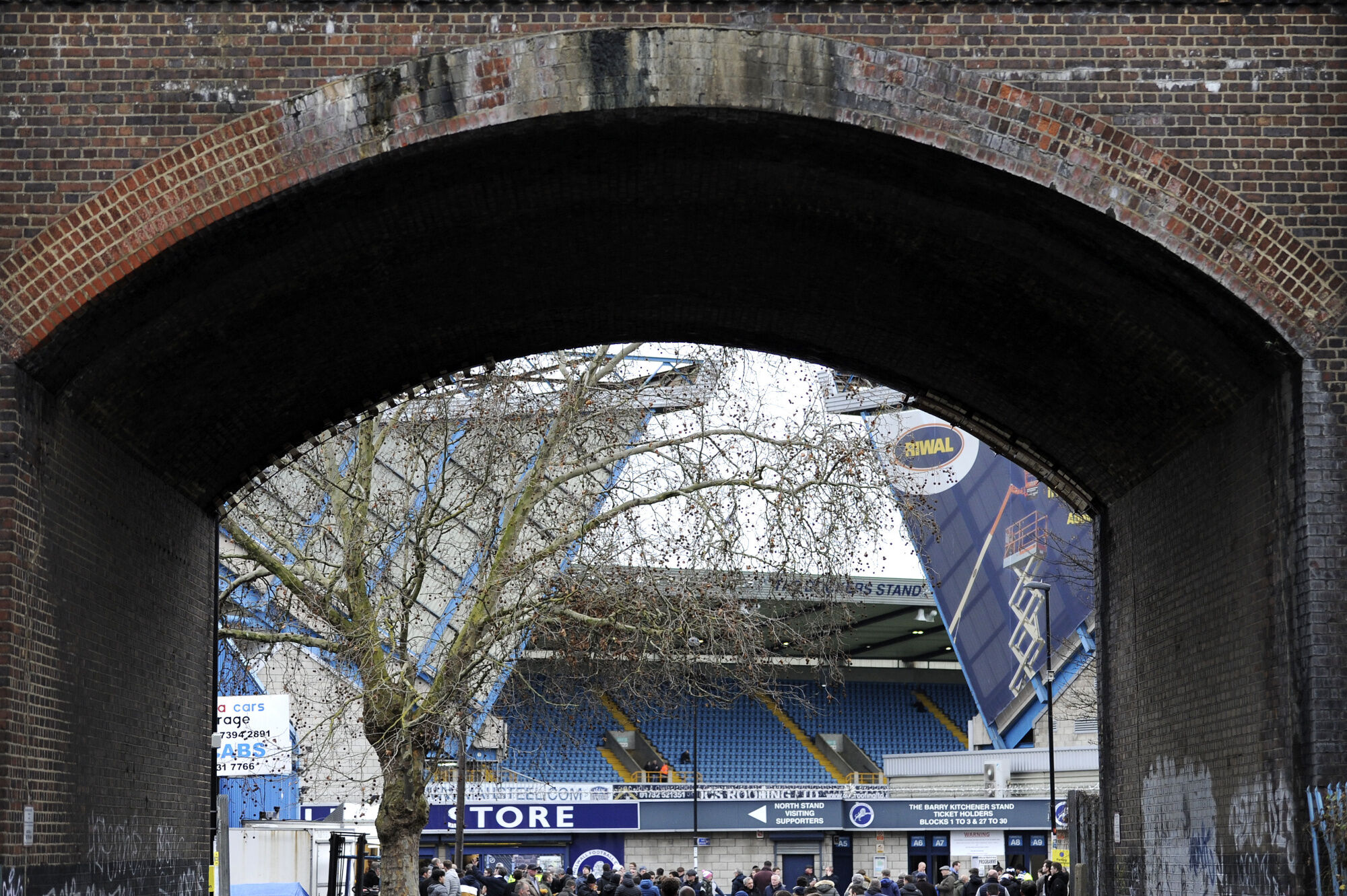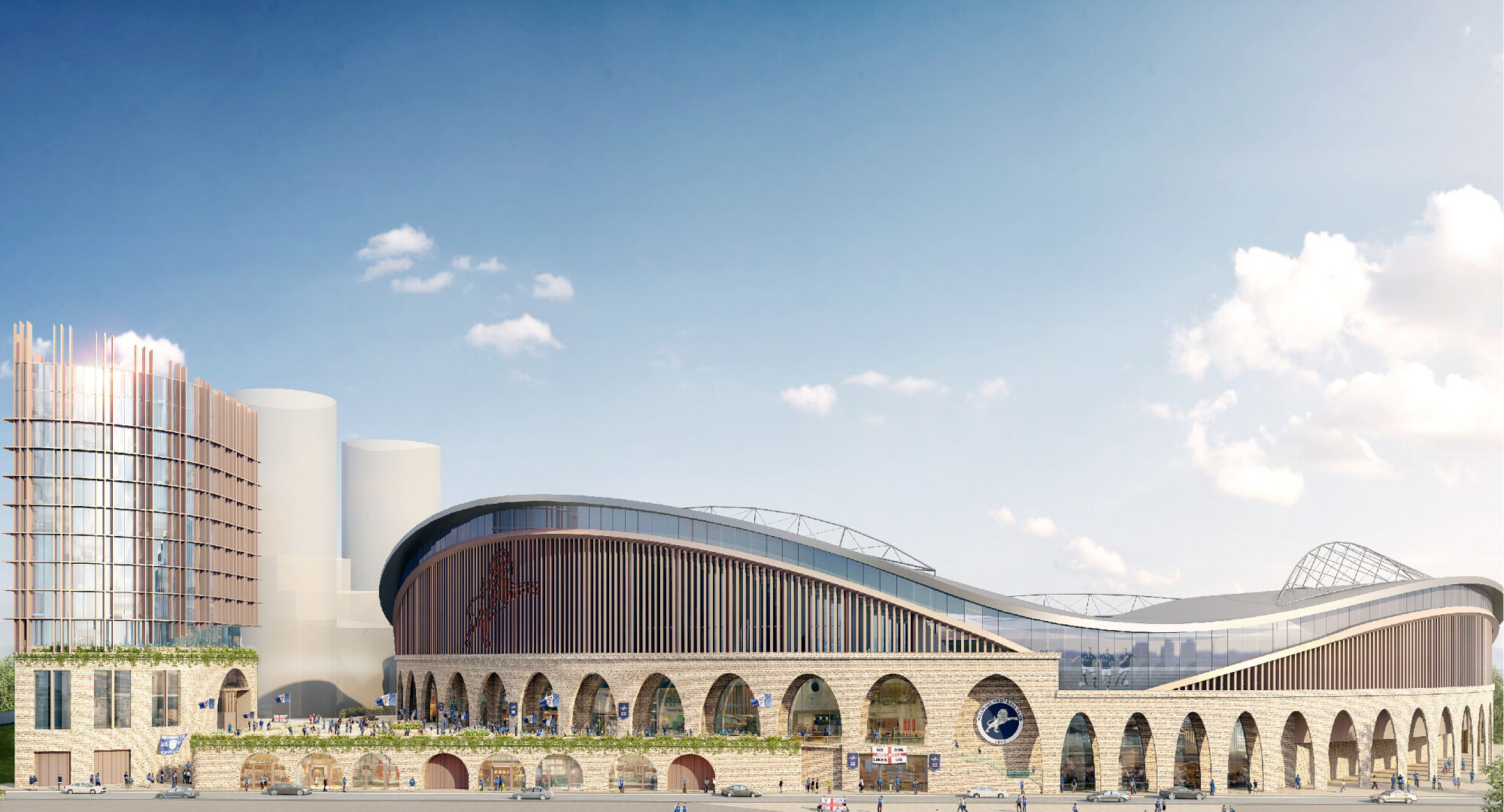While AFC Wimbledon and Brentford are set to embark on new chapters with stadium moves, Millwall could soon be entering into their very own new era in SE16.
Pre-coronavirus, and with the football season still in full swing, the Lions announced plans to redevelop The Den and the surrounding area back in February.
Although the announcement went almost unnoticed, it was nonetheless significant – heralding the end of a lengthy battle with Lewisham Council over a compulsory purchase order on land currently leased to or belonging to the football club.
It meant Millwall were not only allowed to stay at their spiritual home but within a week after the land sale proposal was scrapped, were able to plan for the future following productive discussions with the newly-elected mayor Damien Egan.
These included upgrading the stadium to meet Premier League requirements as well as an expansion that could take the capacity to 34,000.
There will also be new potential for the Lions to take advantage of much-needed ‘non-football’ revenues to ensure long-term financial sustainability in this new post-Coronavirus world, as well as including a number of new facilities that will benefit the local community.

AFL Architects have devised the plans with Millwall now able to enter into a partnership with developers who can deliver their vision if and when the new lease is agreed with the Council.
Some have compared the proposed stadium improvements to the likes of Brighton’s American Express Community Stadium with the extra seating being added behind the existing stands as additional upper tiers.
This would also provide the additional media and player requirements needed for Premier League football if the Lions were to challenge for promotion in the coming seasons.
READ MORE: Why Millwall’s fate could have mirrored that of clubs like Bury
However, some supporters have expressed concerns any revamped Den could diminish its unique character and the renowned atmosphere seldom replicated up and down the country.
Any potential transformation would need to learn the lessons of the Lions’ biggest rivals across the river, West Ham United who transferred the atmospheric and intimidating Upton Park for the soulless bowl of the London Stadium.
These new designs don’t have any unique aspects to make the grounds stand out, often seeing once-feared intense away trips reduced to an ordinariness more than comfortable for visiting opposition.

At present, The Den’s stands are close to the pitch, meaning fans are in close proximity to players – both home and away which adds to the experience and is something that could be lost with a transition to a larger, more modern stadium.
In a move to calm any potential fears, Millwall’s statement on the redevelopment placed a strong emphasis on trying to maintain the current structure as much as possible, with the new facilities largely being built around what is already in place.
There is also – rightly – a focus on incorporating aspects of Millwall’s 135 year history into any new design, with the brickwork arches not only a reference to the current site, but also to Millwall’s original home on the Isle of Dogs.
Nevertheless, there is still the argument that the club – in order to progress – have to modernise and perhaps adhere to some of modern football’s stereotypes.
READ MORE: AFC Wimbledon’s Plough Lane Bond truly shows ‘Home Is Where The Heart Is’
Either way, the revenue opportunities this redevelopment provides are simply too good for the club to miss out on with both chairman John Berylson and CEO Steve Kavanagh understanding the club has to move with the times.
It’s ambition unlike anything ever seen at Millwall before but, even more crucially, has so many positives in terms of maintaining and enhancing the strong links that the club already have with the local community.
Additional and improved facilities will be granted to the Millwall Community Trust (MCT), which is already one of the most respected in English football with the West Stand seeing the proposed creation of multi-use facilities, with usage as classrooms and fitness studios.
It is clear there are elements of this development that will see Millwall veer slightly away from the traditional, but nevertheless the plans have been clearly thought out to preserve the club’s links with the community and their proud history.